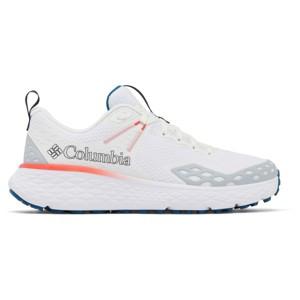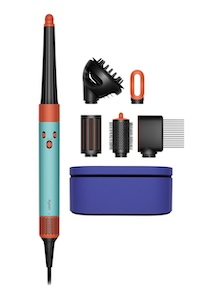
Essential customs rules and
restrictions for entering Kenya
Traveler’s Guide by Parlaxy | Updated: July 30, 2025
Whether you’re flying into Nairobi or Mombasa, or entering through another border point, it pays to know Kenya’s customs rules in advance.
Duty-free limits are tight – there are strict caps on alcohol, tobacco, electronics, and perfume. Exceeding these can lead to fines or confiscation. Some items are completely banned, including plastic bags, certain prescription medications, drones without permits, wildlife products, and fresh produce.
Even if your luggage seems harmless, you’re required to declare anything of concern. Kenya’s customs inspections are thorough, and failure to declare can lead to delays or penalties.
If you’re heading to the coast, safari parks, or the capital, start your trip right: respect the rules, declare honestly, and enjoy a smooth arrival in Kenya in 2025.

Your Essential 2025 Guide to Entering Kenya – Save Time, Avoid Fines, and Travel Stress-Free
Read or save this 2025 Kenya entry guide to avoid delays, unexpected fees, and common border hassles.
| Documents Required for Entry | As of 2025, Kenya no longer requires a traditional visa for most travelers. Instead, all foreign nationals must apply for an Electronic Travel Authorization (eTA) before arrival, regardless of nationality. This policy applies to citizens of the European Union, United Kingdom, United States, Canada, Australia, New Zealand, and most other countries. Electronic Travel Authorization (eTA) Required for All Travelers Every visitor must obtain an eTA prior to departure. The process is fully digital, typically takes a few business days, and requires a valid passport, proof of accommodation, return or onward ticket, and sometimes evidence of sufficient funds. No Visa-on-Arrival Kenya no longer offers visas on arrival. Travelers arriving without an approved eTA may be denied entry at the border. Exceptions & Special Cases Holders of valid Kenyan residence permits, certain diplomatic or official passports, and citizens of select neighboring countries may be exempt from the eTA. However, most travelers should confirm their status well before travel. |
| Currency Export and Import Restrictions | None |
| Currency Export and Import Limits by Amount | Travelers entering or departing Kenya with cash or monetary instruments valued at USD 10,000 or more (or the equivalent in any currency) are legally required to declare the amount to Kenya Revenue Authority (KRA) customs officials. |
| Restricted Items for Import | Travelers aged 18 and over entering Kenya may bring in personal goods valued up to USD 500 duty-free. This includes items such as clothing, electronics, personal accessories, and souvenirs, provided they are for personal useand not intended for resale. |
| Prohibited Items for Import | -Plastic bags (including carrier bags and flat bags) -Narcotic drugs and psychotropic substances -Counterfeit currency and goods -Pornographic material -Unauthorized firearms, ammunition, and explosives -Hazardous chemicals and toxic waste -Meat, dairy, and other animal products without proper certification -Fresh fruits, vegetables, and plant materials without clearance -Unlicensed genetically modified organisms (GMOs) -Cultural artifacts and antiques without export permits -Obscene or subversive literature and media Items infringing on intellectual property rights (pirated CDs, DVDs, etc.) |
| Alcohol Import Regulations | Passengers aged 18 or older entering Kenya by air or sea are entitled to the following duty‑free alcohol imports: -Up to 1 litre of spirits or liquor -Up to 2 litres of wineBeer allowances are not separately specified under duty-free provisions, but up to 2 litres of wine may include beer equivalents in practice |
| Alcohol Export Regulations | Same as import |
| Tobacco Product Import Regulations | As of July 30, 2025, Kenya has implemented a total ban on the importation of tobacco products, including cigarettes, cigars, shisha, and smokeless tobacco. |
| Tobacco Product Export Regulations | Given the ban, the export of tobacco products from Kenya is effectively prohibited. |
| Restrictions on Importing Medications and Dietary Supplements | Travelers bringing medications into Kenya must carry only personal-use quantities accompanied by a valid prescription or doctor’s note. Controlled substances and narcotics are strictly regulated and require prior approval from the Pharmacy and Poisons Board. Importing unregistered or counterfeit medicines is prohibited and subject to confiscation and legal penalties. All medications must be declared at customs upon arrival. Dietary supplements and herbal products must comply with Kenya’s health and safety standards. Unapproved supplements or large quantities intended for resale may be denied entry or seized. It is advisable to carry original packaging, prescriptions, and a doctor’s letter detailing the purpose and dosage. Failure to comply can result in delays, confiscation, fines, or prosecution under Kenyan health and customs laws. |
| Restrictions on Importing Jewelry and Luxury Goods | The combined value of all personal items, including jewelry, should not exceed USD 500 to qualify for duty-free entry. |
| Restrictions on Exporting Jewelry and Luxury Goods | -An export declaration is required at the point of exit, detailing the items being taken out of the country. -Carry proof of ownership such as receipts or appraisals to avoid suspicion of illegal trade. -Ensure the items are not intended for commercial resale; export of personal items is generally allowed without export permits. |
| Restrictions on Importing Items of Artistic and Historical Value | Travelers bringing items of artistic or historical significance into Kenya must adhere to the following guidelines: Personal Use Only: Items should be for personal use and not intended for commercial resale. Documentation: Carry receipts, certificates of authenticity, or provenance documents to substantiate the item’s origin and value. Cultural Heritage Compliance: Ensure that the items do not violate Kenya’s cultural heritage laws, which protect national treasures and artifacts. Declaration: Declare items at customs upon arrival, especially if they are of significant value or require special handling. |
| Restrictions on Exporting Items of Artistic and Historical Value | Travelers exporting artistic or historical items for personal use must obtain an export permit from the relevant heritage authority. The permit application should include a detailed description, reason for export, and destination. Items may be inspected, and conditions imposed, such as temporary deposit or return requirements. All exports must be declared and cleared through customs with the permit presented. Unauthorized export is a criminal offense, punishable by fines or imprisonment. It is important to comply fully to avoid legal consequences. |
| Restrictions on Importing Pets | All pets entering Kenya require an import permit from the Ministry of Agriculture. Pets must be microchipped with an ISO-compliant chip and have a valid rabies vaccination administered at least 30 days before arrival but no more than 12 months prior. A health certificate issued within five days before travel confirming the pet is free from contagious diseases is also mandatory. Pets must enter through Jomo Kenyatta International Airport and travel as manifest cargo; in-cabin or excess baggage transport is not allowed. Quarantine is generally not required if all import conditions are met. Required documents include the import permit, microchip details, rabies vaccination certificate, health certificate, owner’s passport copy, and a formal request letter. Ensuring all paperwork is complete will help avoid delays or complications. |
| Restrictions on Exporting Pets | Travelers exporting pets from Kenya for personal use must obtain an export permit from the Ministry of Agriculture. A veterinary health certificate issued within five days prior to departure is required, confirming the pet is healthy and free from contagious diseases. Up-to-date vaccination records, including rabies vaccination administered at least 21 days before travel, must be provided. Pets should be microchipped with an ISO-compliant 15-digit chip and treated for internal and external parasites within 48 hours before departure. Make appropriate transport arrangements with the airline and present all required documentation to customs at the point of exit. Compliance with these regulations ensures a smooth export process. |
Latest news – customs rules, travel alerts & more
Earn while traveling with Parlaxy
Connect with a shopper and deliver for a fee
Parlaxy Wiki is a customs guide designed for travelers who prepare smartly. We’ve gathered all the latest information by 2025 so that the Parlaxy community has access to up-to-date customs rules and restrictions for different countries, as well as insights into popular destinations and travel tips for exploring various corners of the world. Discover the world with Parlaxy Wiki!
Parlaxy connects those who need to purchase items from another city or country with travelers planning trips to those destinations. Parlaxy is not only a convenient platform where buyers can order products from anywhere in the world and travelers can earn by delivering goods along their travel routes—it’s also a reliable source of current travel information worldwide.
Create an order if you’re shopping, or create a trip if you’re ready to earn while traveling!







